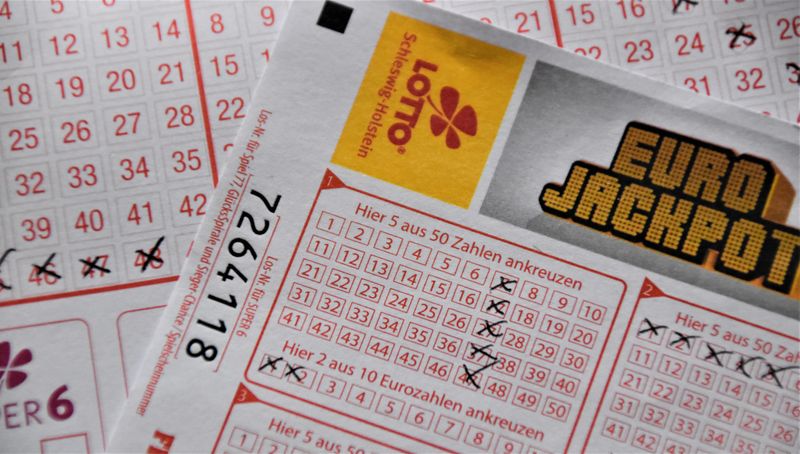The Powerball Jackpot Phenomenon: Why Does it Increase Over Time?
Introduction
The Powerball lottery has captivated the imagination of millions of people with its astronomical jackpots that continue to reach historic amounts. As the current Powerball jackpot climbs to an estimated $1 billion, many are left wondering how exactly this phenomenon occurs. In this report, we will explore the factors that contribute to the increase in the Powerball jackpot over time and delve into the philosophy behind such staggering prize amounts. Additionally, we will examine the largest payouts in the game’s history and shed light on the tax implications for winners.
The Mechanics of the Powerball Jackpot
The Powerball jackpot increases over time due to the rules and mechanics of the game. Powerball drawings take place three times a week, and each time there is no jackpot winner, the prize money rolls over into the next drawing. This allows the jackpot to grow exponentially as more people purchase Powerball tickets in the hope of becoming a multimillionaire.
The estimated value of the Powerball jackpot is primarily determined by the number of tickets sold before each drawing. The more tickets bought, the larger the jackpot becomes. This continuous cycle of rollovers and ticket sales leads to the staggering amounts seen in the Powerball jackpot.
Designing the Games for Larger Jackpots
Economics professor Victor Matheson suggests that the Multi-State Lottery Association, the organization that manages both Powerball and Mega Millions, intentionally designs the games to generate larger sums of money. This intentional design is aimed at creating a sense of excitement and enticement for players, ultimately driving ticket sales and increasing the jackpot amounts.
The total amount advertised as the jackpot includes both the actual cash value and the interest over a 30-year period. The annuitized option allows the Powerball lottery to advertise the jackpot as the total amount a winner would receive, before taxes, if they choose to receive their prize in annual installments that increase by 5% each year.
The Philosophy Behind Massive Jackpots
The allure of massive lottery jackpots raises philosophical questions about the nature of wealth and our collective fascination with the possibility of instant riches. These jackpots represent the ultimate dream of financial freedom and offer a glimpse into the complex relationship between money, happiness, and the pursuit of a better life.
Some argue that the astronomical amounts associated with Powerball jackpots are excessive and highlight the vast income inequality in society. The vast difference between the minimum wage and the potential winnings can be seen as a reflection of the wealth disparities in our world.
Others see these large jackpots as a form of entertainment and a way for people to indulge in the fantasy of what they would do with such vast sums of money. It allows individuals to temporarily escape from their everyday lives and imagine a world free from financial constraints.
The Largest Powerball Jackpots in History
The Powerball jackpot has reached unprecedented heights throughout its history, with several record-breaking payouts. The largest Powerball jackpot ever won sits at a staggering $2.04 billion, claimed by a ticket holder in California in November 2022. Prior to that, a $1.586 billion prize was split among three winners from California, Florida, and Tennessee in 2016.
Other notable Powerball jackpots include a $768.4 million win in Wisconsin in 2019, a $758.7 million jackpot won in Massachusetts in 2017, and a $754.6 million win in Wisconsin in February 2023.
Tax Implications for Powerball Winners
It is important to note that Powerball payouts are subject to federal and jurisdictional income taxes. The advertised annuity and cash value of the jackpot are estimates until all ticket sales are finalized leading up to a drawing. The federal government withholds 24% of a winner’s prize if it exceeds $5,000. Additional state taxes may also apply, depending on the winner’s place of residence.
While some states, like California, Delaware, Florida, Tennessee, and Texas, do not impose an additional tax on lottery winnings, others, such as New York, withhold nearly 9% of the winnings. These tax implications reduce the actual amount received by the jackpot winner.
Conclusion
The Powerball jackpot‘s continuous increase over time is driven by the rolling over of unclaimed prizes and the high demand for tickets. As we witness the current jackpot reaching an estimated $1 billion, it is important to consider the philosophical implications of such massive winnings. While these astronomical jackpots may raise eyebrows and fuel debates about wealth distribution, they also provide a temporary escape from reality and serve as a source of entertainment for millions. Whether or not to partake in the frenzy is a personal decision, but for those who do, it’s crucial to be aware of the tax implications that accompany a Powerball jackpot win.

<< photo by Javon Swaby >>
The image is for illustrative purposes only and does not depict the actual situation.
You might want to read !
- Scramble for Safety: Chaos Erupts as Stabbing Shakes Toronto Subway
- “From Pussycat to Wife: Nicole Scherzinger and Thom Evans Take their Relationship to the Next Level”
- Don Lemon Opens Up in First Interview Since CNN Departure: “I’m Not Going to Hold Back”
- Breaking News: Sofia Vergara and Joe Manganiello Call It Quits: A Closer Look at Their Divorce
- “The Golden Bachelor”: Unveiling Canada’s Most Eligible Man – Get to Know Gerry Turner
- Navigating the Hollywood Maze: Tom Cruise’s Mission Impossible to Meet Expectations
- Mysterious Space Debris Washes Up on a Western Australia Beach
- Battle of London: Tottenham Hotspur vs West Ham United – Live Updates and Lineups
- Colorado Avalanche and Ross Colton Seal Four-Year Deal to Bolster Team’s Roster – ESPN




